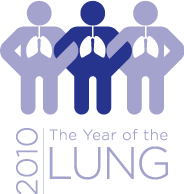June 1st, 2010 by Bryan Vartabedian, M.D. in Better Health Network, Health Policy, Opinion, True Stories
1 Comment »

I regularly talk to my patients’ parents about social health. What parents do, what they think, and how they socially experience their child’s health problems has become an interest of mine.
I can hear it now: “Of course patients won’t discuss their social health activities with you, you’re a doctor.” Perhaps, but I don’t think so. Actually, I’ve had some very interesting open dialog with a few of my long-term patient-parents. Many have children suffering with chronic diseases such as Crohn’s disease, eosinophilic enteropathy, and the like. The relationships I cultivate are open, and the nature of my dialog has been just as consistently open as other aspects of our relationship.
Interestingly, while nearly all have used online search to understand their disease, most have never connected with other disease sufferers in the online space. The concept of crowdsourcing is met with puzzled looks. Sure they’re e-patients, but I would characterize most of my patients as e-patients. The question is: What does that really mean? Read more »
*This blog post was originally published at 33 Charts*
May 30th, 2010 by BarbaraFicarraRN in Better Health Network, Health Tips
No Comments »

 “Play, Incorporating Animistic and Magical Thinking Is Important Because It: Fosters the healthy, creative and emotional growth of a child; Forms the best foundation for later intellectual growth. Provides a way in which children get to know the world and creates possibilities for different ways of responding to it. Fosters empathy and wonder.” — Rachel Carson, “A Sense of Wonder”
“Play, Incorporating Animistic and Magical Thinking Is Important Because It: Fosters the healthy, creative and emotional growth of a child; Forms the best foundation for later intellectual growth. Provides a way in which children get to know the world and creates possibilities for different ways of responding to it. Fosters empathy and wonder.” — Rachel Carson, “A Sense of Wonder”
Remember “Red Light, Green Light,” “One-Two-Three,” “Tag, You’re It,” “Mother, May I?” or “Kickball?” These are just some of the good old-fashioned outdoor games kids used to play, and they are making a comeback. There’s nothing better than the sound of kids playing outdoors. Even kids playing outside making up their own games can bring them a lot joy and can be great exercise. With all the technology that surrounds us today, it’s great to see kids playing in the park and in their backyards.
It’s no secret that outdoor play and fresh air are great for kids’ overall physical and emotional well-being. In fact, a study in the journal Pediatrics concludes that children ages 8 and 9 who had more than 15 minutes of recess had better classroom behavior. This study suggests that school children in this age group should be provided with daily recess. Read more »
*This blog post was originally published at Health in 30*
May 29th, 2010 by John Mandrola, M.D. in Better Health Network, Health Policy, Health Tips, True Stories
No Comments »

This third installment of “Cycling Wednesdays” comes as a guest post from Rachel Fagerburg. Rachel is a dear friend, mother of two young children, fellow cyclist, and wife of a teammate. She is famous in this area for her talent as a race announcer. I am grateful for her words:
On May 19, my husband and I joined thousands across the globe to honor cyclists who have been injured or killed while cycling on public roadways. With 1,000 participants at the first ride in 2003, the Ride of Silence has grown to a worldwide event raising awareness of the tragedies that can occur between motorists and cyclists. My husband and I rode in honor of two people we were privileged to call “friend.” Read more »
*This blog post was originally published at Dr John M*
May 28th, 2010 by Toni Brayer, M.D. in Better Health Network, Health Tips, Research
No Comments »

 The British Medical Journal reported on a study of toothbrushing and found that people with poor oral hygiene had an increased risk of cardiovascular disease and heart attack.
The British Medical Journal reported on a study of toothbrushing and found that people with poor oral hygiene had an increased risk of cardiovascular disease and heart attack.
We’ve known for the last two decades that inflammation plays an important role in atherosclerosis. Markers of low-grade inflammation like C-reactive protein are also shown to be higher in heart disease.
The Scottish Health researchers looked at the general population and followed a large subset with questions about their oral health. They asked about frequency of dentist visits, toothbrushing, and controlled for many co-variables such as general activity, hypertension, smoking, height and weight. They also collected blood for studies of C-reactive protein as a marker of inflammation. They removed from the analysis participants who had no natural teeth (edentulous) and those with existing cardiovascular disease.
This elaborate and lengthy study showed that toothbrushing is associated with cardiovascular disease, and that subjects who brushed their teeth less than once a day had a 70 percent increase in heart disease compared with people who brushed twice a day. The inflammation that periodontal disease causes is directly related to increased C-reactive protein and increased heart attacks.
Leave it to the Scotts and the Brits to remind us to brush and floss every day.
REFERENCE: British Medical Journal, 2010; 340: c2451.
*This blog post was originally published at EverythingHealth*
May 28th, 2010 by StaceyButterfield in Better Health Network, Health Tips, Humor, Opinion, True Stories
No Comments »

 Want to know the secret to successful care of ICU patients? Think back to the advice your grandmother always gave, joked American Thoracic Society conference speaker Renee Stapleton, M.D., recently:
Want to know the secret to successful care of ICU patients? Think back to the advice your grandmother always gave, joked American Thoracic Society conference speaker Renee Stapleton, M.D., recently:
– Wash your hands.
– You can’t sleep your life away.
– Get some exercise.
– Sit up straight.
– Take your medicine.
– If you can’t remember it, write it down.
*This blog post was originally published at ACP Hospitalist*




 “Play, Incorporating Animistic and Magical Thinking Is Important Because It: Fosters the healthy, creative and emotional growth of a child; Forms the best foundation for later intellectual growth. Provides a way in which children get to know the world and creates possibilities for different ways of responding to it. Fosters empathy and wonder.” — Rachel Carson, “
“Play, Incorporating Animistic and Magical Thinking Is Important Because It: Fosters the healthy, creative and emotional growth of a child; Forms the best foundation for later intellectual growth. Provides a way in which children get to know the world and creates possibilities for different ways of responding to it. Fosters empathy and wonder.” — Rachel Carson, “

 The British Medical Journal reported on a study of toothbrushing and found that people with poor oral hygiene had an increased risk of cardiovascular disease and heart attack.
The British Medical Journal reported on a study of toothbrushing and found that people with poor oral hygiene had an increased risk of cardiovascular disease and heart attack.
 Want to know the secret to successful care of ICU patients? Think back to the advice your grandmother always gave, joked
Want to know the secret to successful care of ICU patients? Think back to the advice your grandmother always gave, joked 







